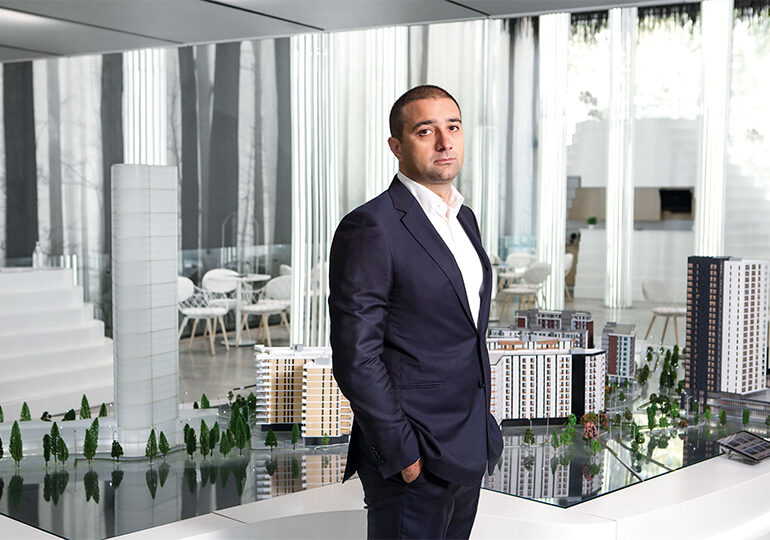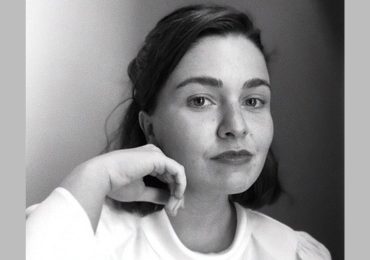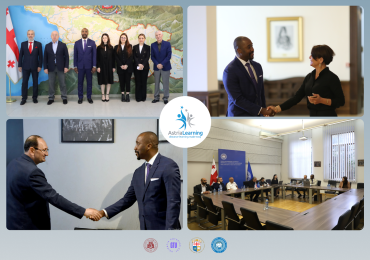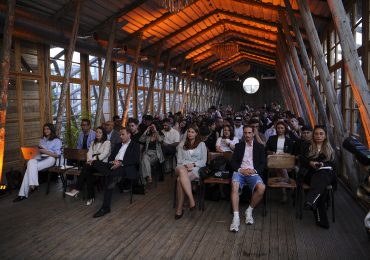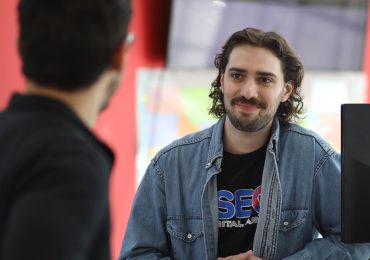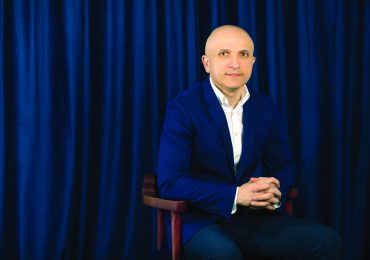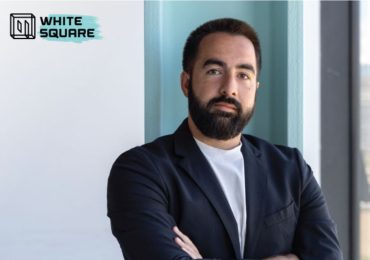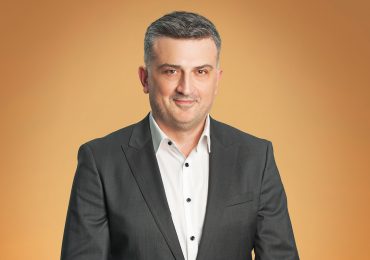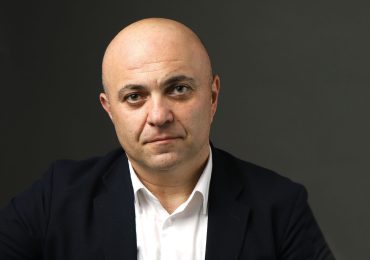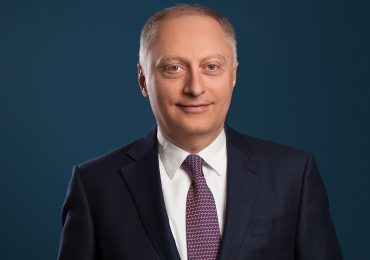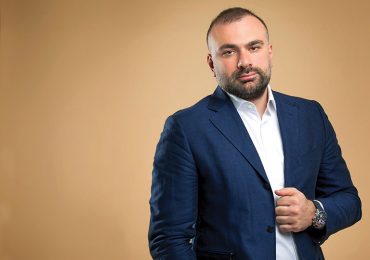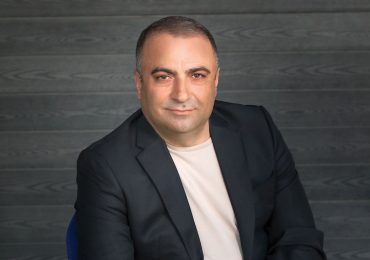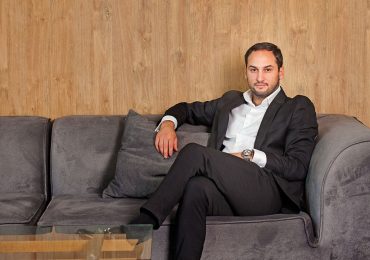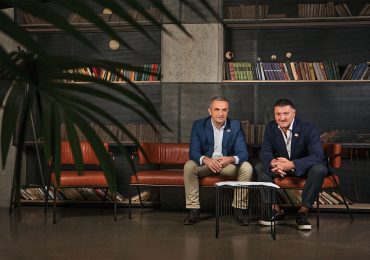Against the backdrop of the pandemic and significant changes within the company, m² posted its best results in a decade during each of the last two years. The unprecedented growth in the number of international partnerships and investments has been described by the company as “the Nikoloz Medzmariashvili effect.”
The Georgian economy grew by 29.9% year on year in the second quarter of 2021. The construction sector, which itself recorded a 34% growth, contributed significantly to the recovery of the economy. Construction was one of the first industries to benefit from the government’s counter-recessionary measures and an injection of more than ₾400 million. Second-quarter figures show an increase in job numbers and average monthly salaries in the sector.
To illustrate the current trend, we chose a company that is undergoing significant transformation in terms of its structure, ideology, branding and technology. Founded in 2006, the company established partnerships with financial institutions such as the IFC and FMO one year after the 2008 war and economic crisis, when trust towards Georgian developers was almost non-existent. The funding allowed the company to offer its customers turnkey apartments and quickly develop a reputation as the industry leader.
This is m². The company has been managed by Nikoloz Medzmariashvili since 2019.
Nikoloz Medzmariashvili spent a long time working in Austria in the banking and investment sector. He returned to Georgia in 2012 and put his experience into managing businesses and brokering large deals. For example, he helped close the largest transaction in the local property market worth $150 million.
In the spring of 2019, Nikoloz accepted an offer from m²and soon found himself at the centre of massive structural changes. He took charge of the company in October of the same year.
Statistics show that the company sold 37% of its apartment portfolio by the end of 2020, which translates into 1,200 flats. The figure increased to 53% by the end of June 2021, creating the expectation that last year’s result will be surpassed.
The number of m²’s international partners has increased significantly under Nikoloz Medzmariashvili. ZGF is a global firm that is helping the company with neighbourhood development planning, while the international engineering consulting firm ILF inspects the quality of projects and supervises construction.
Most importantly, m² is the first company in the region that managed to receive funding for a development project from the Asian Development Bank.
Forbes Georgia spoke to Nikoloz Medzmariashvili about this news and the company’s other activities under his management.
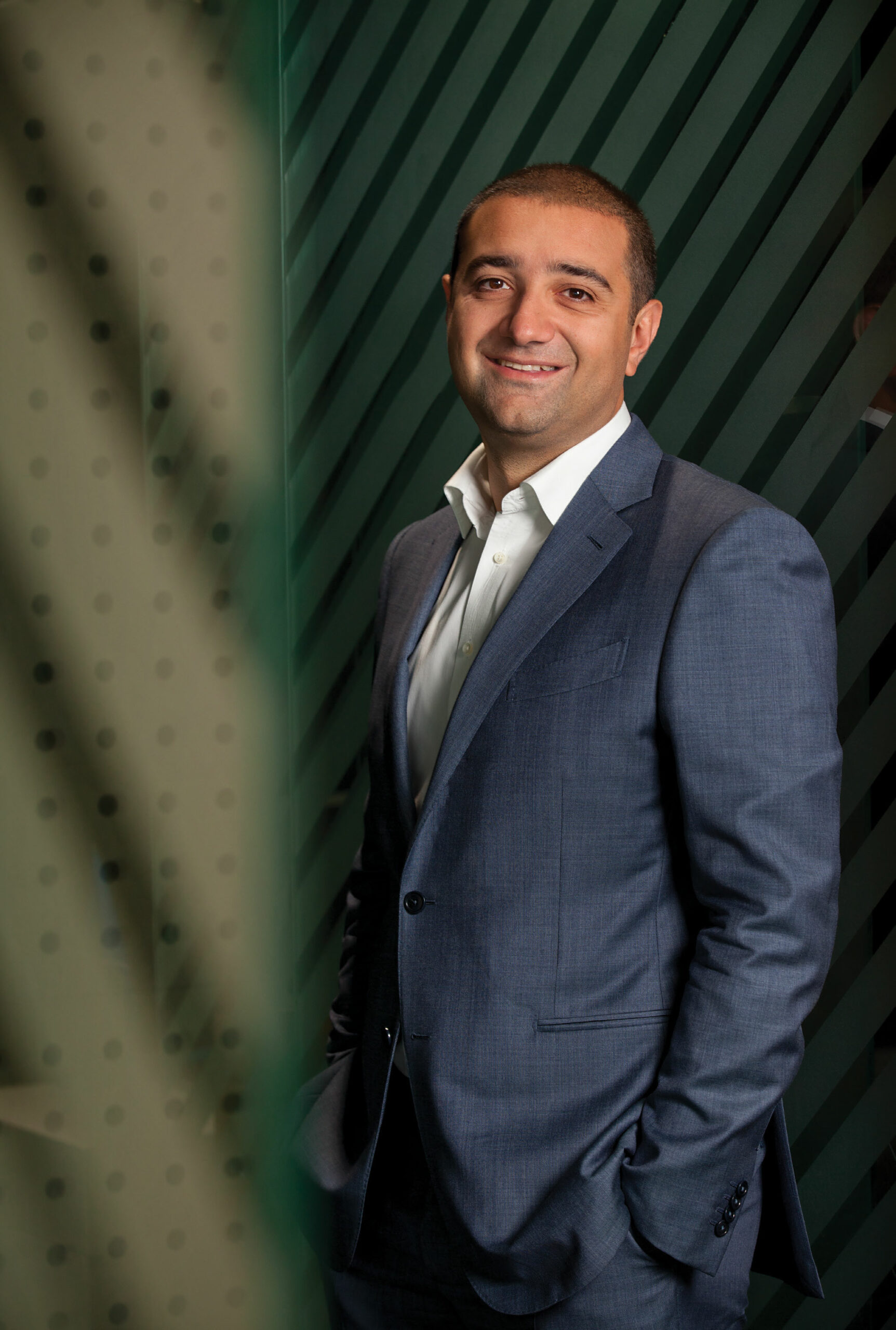
Your directorship has coincided with a new phase in the history of m². What exactly has this involved?
2019 was the year m² introduced the new neighbourhood concept for the m³ Saburtalo project. We approved the master plan, obtained the necessary permits, and began implementing the project. This was indeed a new stage for our company. To give you an idea about the scale of this undertaking: Up until 2020, m² built approximately 300,000 square metres of floor space for around three thousand residents in total, while m³ Saburtalo alone will occupy 380,000 square metres of space and will be home to more than two thousand eight hundred families. I must also mention the four hectares of recreational space, the large park and the green courtyards that will make this neighbourhood truly special.
But there are also other projects, right?
Correct. Altogether, our projects will add 780,000 square metres of built-up area to the city and house seven thousand two hundred new families.
Let’s focus on team management – what is Nikoloz Medzmariashvili’s approach in this regard?
The professionals working in our team are self-managing individuals who are leaders in their respective fields. My management style is therefore horizontal, rather than vertical. My goal is to get the most out of my team members and develop them to achieve the best possible results.
Is the company’s approach different when it comes to communication with customers?
When you get around four hundred new customers a year, it is easier to reach out to every one of them. However, when you get one hundred new customers each month in addition to the existing three thousand residents, integrating new technology and adopting a systemic approach becomes a priority. We constantly implement new standards and maintain communication with our clients to identify their needs and expectations. We also try to keep an individual approach to maintain an emotional connection with our customers.
Your directorship also coincided with the most acute phase of the pandemic. What signals did you get from the market?
We are always one step ahead of others on the real estate market, as we do much more than sell properties – we create a lifestyle. For example, we were the first company to offer turnkey apartments in 2010. We also pioneered energy-efficient construction and fire safety standards in Georgia. Our buildings are adapted to the needs of disabled people. Our maintenance service is available to our clients 24/7, ensuring their safety, security, and full comfort. Construction regulations that companies must now follow according to local law were implemented by us ten years ago. When the time came to deliver something new, we sat down and discussed how we could move to a new level and create more added value for our customers. This is how we came up with the neighbourhood development concept and launched the m³ Saburtalo project. Here we are selling the space rather than just square metres. We are selling three dimensions.
How big is the demand for the m³ project?
Demand is quite high. The project is due to be completed in 2024.
Did you meet existing demand, or did you create new demand?
The number of residents per apartment in Tbilisi is considerably higher than the European average. Therefore, demand has not yet been met. Our company’s advantage is our innovative approach that creates demand. When you are conducting such an extensive urban development initiative and creating a new centre of attraction, demand tends to shift towards that centre and other construction projects start to develop around it.
And what you are doing has become a trend?
Indeed, we are trying to create market trends and introduce new things. Naturally, others will then copy us – we are building a neighbourhood, selling turnkey apartments, erecting energy-efficient buildings and more. All of this was started by us and has already become a trend. Innovation is good, but it is also risky. Do you use international expertise? Take m³ as an example: This project was designed by architects from the US firm ZGF – one of the world’s leading urban development companies. The project includes everything that a neighbourhood needs and all standards have been met. One of the world’s top ten engineering consulting firms ILF inspects our projects, implements standards, conducts training, and consults us on technical issues.
Is the pandemic affecting your plans?
When the pandemic began and a state of emergency was declared in Georgia in March 2020, we immediately started considering our options. We decided to join the fight against the virus rather than leave everything to the doctors and sit on the sidelines. We introduced various initiatives, such as offering apartments at discounted prices and donating sales revenue to the National Centre for Disease Control to support medics. We actively promoted the vaccine within our company, as a result of which most of our staff are now fully vaccinated. At the same time, we modified our IT system to facilitate online sales. This was not an easy process, but we managed to do it in three days. We were fully adapted to the new environment by the end of March. We sold one hundred and twenty apartments in April – a very high figure considering the circumstances. Evidently, buyers trust our company. Our sales figures showed that the market was adjusting, and demand had not disappeared.
Recently there was a spike in demand for small apartments, as many buyers view them as investment properties. Is this trend continuing?
It is, demand for smaller apartments is still high, as they are a good investment. They are relatively cheap and easy to rent out.
Who are your customers?
Mainly Georgian nationals, as well as young people and immigrants who intend to return to their home country and wish to purchase an apartment here. Furthermore, as you know, our office and our representatives are a constant presence in our complexes and are always ready to provide support to tenants. This is particularly convenient for those who see their apartment as an investment project. Our apartments are very easy to rent out.
Therefore, the investment cycle does not end with the apartment sale?
Precisely. We do not disappear after we sell you the apartment. We are there, and we take responsibility. This is how our company looks after its tenants, and it is why our clients trust us. Our existing customers are looking at apartments in our new projects, which is a sign of their satisfaction.
What kind of market are you currently operating in?
The market is now much more competitive. There are more players, and companies must work much harder to achieve success. We plan to put 780,000 square metres of floor space into operation by 2024, which is obviously quite a lot.
The sector received subsidies during the pandemic. One of the explanations was that apartment prices would otherwise have decreased. Ordinary customers and taxpayers would probably ask why this would have been such a bad thing?
At the start of the pandemic, there was certainly the risk of prices falling. Since many companies on the market are operating with tight margins, a further fall in prices would have had serious consequences similar to a few years ago. At that time, many smaller companies that did not have the necessary resources to sustain their businesses for one or two years were on the brink of bankruptcy. In our industry, resources are exhaustible: You have a certain number of square metres at your disposal, and if you sell them at a lower price than planned, then you will almost certainly face funding shortages at some stage. The subsidy programme provided the market with much-needed stimulus. Prices initially fell by around 10%, but later returned to original levels and even increased in some instances. If people want to know why the stimulus plan was so important, I can explain. If the development sector grinds to a halt, it affects the manufacturers and importers of furniture, construction and renovation materials, household equipment and many related businesses whose products will become useless if we stop building apartments. I believe that this programme saved not only the development sector but also many other businesses as well.
Businesses also have corporate social responsibility. We have been hearing this term more and more recently. Forbes frequently focuses on this topic too. What is your strategy in this regard?
Corporate social responsibility is our priority. We are implementing it at a policy level both within our organization and externally. For example, the empowerment of women is a key value for us. You may be surprised to hear women outnumber men in our company. They hold leading positions, even in traditionally male-dominated areas such as IT, sales, HR, brand development, crisis management, permits, property maintenance, customer relations and others. This is a very important issue for us.
Additionally, we fund educational initiatives, disabled people’s needs, healthy lifestyle promotion and environmental projects. I would like to single out the Mtatsminda reforestation project, which involves three-year maintenance of each plant with expert support.
What is the geographic distribution of the 780,000 square metres?
Nutsubidze Street in Saburtalo, Chkondideli Street in Nadzaladevi, Mirtskhulava Street in Didube and the new neighbourhood concept in the shape of m³ Saburtalo.
Is the development of your core infrastructure up to speed?
We have not had any problems in this regard at our construction sites.
What is your experience regarding permits and bureaucracy?
If we look at the history of m², there have been difficult times, and there have been easier times in this respect. Since I joined the company in 2019, City Hall has consistently prioritized green spaces, fire safety and quality in construction. The government adopted a new construction code, leading to an increase in safety and quality requirements, but this has barely affected us, as we were already using these standards in our construction projects. We welcome these changes, as they help develop the industry and healthy competition.
Does this mean that harmonization with EU policies in this sector represents an opportunity rather than a challenge for you?
Absolutely. We were meeting these standards before they even existed in our market. The absence of such standards allowed certain companies to sell their apartments at lower prices and achieve a competitive advantage. Now the circumstances are much more balanced because of the changes.
Where does the market currently stand in terms of innovation and technological know-how?
The market is relatively underdeveloped in this regard. I think that in the long term, harmonization with the EU will also benefit us in this field –competition will be more balanced, and customers will ultimately receive a good product.
When we designed the m³ Saburtalo project, we gathered significant experience from our American partners in terms of apartment planning and space allocation, to give you two examples. Some people prefer smaller apartments. m³ Saburtalo will offer them a common space where they will be able to work and receive guests. There will be special areas for children and pets. Our innovation will come to the fore in this project.
It seems to me that this is not for everyone. Only the upper and middle classes can afford it, and they represent a very small percentage of the Georgian population. Additionally, there are the EU standards that we talked about earlier. Is there significant competition in this segment?
I believe that our m³ Saburtalo project has no competition. Naturally, whenever someone makes the first step, others follow. However, for us, it is important to be first – to create new demand and a new market. While we implement the neighbourhood development concept, we are not neglecting our standard product either. We are constantly improving all our products.
Some problems are specific to this market, while others are of a global nature. For example, disruptions in the supply chain have raised prices in almost every field across the world. Was your sector also hit by inflation?
All sectors have been hit by inflation. Disruptions in the supply chain and the global pandemic are also affecting the market. Supplies and transportation have become more expensive. Prices have increased four or fivefold. Only large companies are relatively well insured against these risks.
Is there any less uncertainty surrounding the pandemic now? Can we say that the sector has entered a post-pandemic period?
I would not say that we are in a post-pandemic period yet. Nobody knows when it will be over and what the consequences will be. However, we have learned to live with the virus. We have adapted to the new environment, made significant changes, and improved our systems. Most importantly, we have maintained quality – we deliver on whatever we promise our customers.


